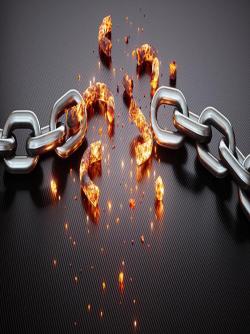When Hard Work Is Not Enough
We were wrong about Theodore Roosevelt—and many of us have learned the wrong lesson from his life.
Theodore Roosevelt was the twenty-sixth President of the United States, and he left an enormous impact on the development of America. His legacy includes breaking up vast corporate monopolies, pushing for food and drug safety regulations, and setting aside 230 million acres of land for public use. He was the first U.S. President to use the press as a tool to connect directly with the public, and as president he had unmatched energy and charisma.
But we were wrong about him.
In early life, Theodore Jr. (his father was a Theodore as well), suffered from a severe case of asthma. Biographer David McCullough recounted a conversation Roosevelt’s father had with him as a boy: “Theodore, you have the mind, but you have not the body, and without the help of the body the mind cannot go as far as it should. You must make your body. It is hard drudgery to make one’s body, but I know you will do it” (Mornings on Horseback, 2001, p. 112).
And make it he did. Young Teddy poured himself into strength-building and lung-capacity exercises with a fervor—so much so that his reputation has reached our generation as the inspirational story of a young boy who triumphed over physical limitations. Teddy Roosevelt has become the personification of “pull yourself up by your own bootstraps” personal development—the idea that if you work hard enough and dedicate yourself completely to a goal, you can achieve just about anything.
Only, it didn’t exactly happen that way. Roosevelt’s asthma did dramatically improve as he moved into young adulthood—but it wasn’t entirely because of his exercises. McCullough wrote, “There was to be a misconception in later years that he conquered his childhood infirmities mainly through will power and body building, that he rid himself of asthma by making himself a strong man. But that is not quite the way it happened” (p. 167).
McCullough explained that Roosevelt’s asthma didn’t entirely go away. Certainly, his determination and perseverance played a part in the accomplishments he made throughout his life. But when it came to his asthma, it is likely that there were factors besides his exercises that led to his improvement—changes in his environment and life situation were probably more significant.
Myth vs Reality
Teddy Roosevelt embodies the American myth that you can overcome just about anything if you try hard enough. But the hard, cold reality is that many factors are beyond our control. We can’t quite accomplish everything we want. Sometimes things change and our circumstances improve—at other times, we must learn to live with our limitations. Either way, hard work by itself, though important, does not always guarantee success.
We see this everywhere in the world around us. Some people live in countries wracked with political repression and even violence. Some are forced to flee their homes for personal safety. Just working harder—exercising self-discipline and grit—doesn’t make their problems go away. Others, living in poor countries with limited opportunities, struggle financially. They may get a good education, have a great work ethic, and strive to improve their conditions, but their external circumstances hold them back.
For others, health conditions make their lives difficult. I had a fifth-grade classmate named David who was confined to a wheelchair because of a rare disease that prevented his feet and hands from developing normally. The rest of us were cautioned not to bump into him, as his skin could break and bleed easily. He wrote with the greatest difficulty by propping a pencil or pen between his deformed hands. David was extremely bright and academically was at the top of his class—but all the tenacity, self-discipline, and hard work in the world would not have reversed his physical condition.
Our X-factor
The Bible does teach us to work hard—Scripture is full of advice about the benefits and blessings of applying ourselves with diligence. King Solomon advised, “Whatever your hand finds to do, do it with your might; for there is no work or device or knowledge or wisdom in the grave where you are going” (Ecclesiastes 9:10). He captured the importance of using our time to learn and grow.
But perhaps it’s not a coincidence that, in the very next verse, Solomon acknowledged that we all have limitations: “I returned and saw under the sun that—the race is not to the swift, nor the battle to the strong, nor bread to the wise, nor riches to men of understanding, nor favor to men of skill; but time and chance happen to them all” (v. 11). Sometimes circumstances dictate unexpected outcomes despite the best planning, preparation, or effort. It’s good to keep this in mind, even as we do our best. Time and chance can happen to anyone.
But there is an “X-factor” for those who are in a relationship with God—parents as well as their children (Acts 2:39; 1 Corinthians 7:14). If we submit to God in obedience and repentance, He will make the blessings of His way of life available. Christian parents have the opportunity and responsibility to teach their children that if they humbly follow Him in an obedient and repentant attitude, He will watch over them—their lives will not just be governed by random chance. Regarding His followers, Jesus said, “My Father, who has given them to Me, is greater than all; and no one is able to snatch them out of My Father’s hand” (John 10:29). As we accept His help, He will not allow us—or our children—to be tried beyond what we are able, but “with the temptation will also make the way of escape” (1 Corinthians 10:13).
As parents, we need to teach our children that when they put their hand in God’s hand, He will guide and help them. He will never leave them or forsake them (Hebrews 13:5). But we must explain to them that God sometimes allows us to remain in trials because He is teaching us to look to Him and depend on His help. The Apostle Paul wrote about learning this lesson:
Concerning this thing [a physical infirmity] I pleaded with the Lord three times that it might depart from me. And He said to me, “My grace is sufficient for you, for My strength is made perfect in weakness.” Therefore most gladly I will rather boast in my infirmities, that the power of Christ may rest upon me. Therefore I take pleasure in infirmities, in reproaches, in needs, in persecutions, in distresses, for Christ’s sake. For when I am weak, then I am strong” (2 Corinthians 12:8–10).
So, when you face a trial—or when you are teaching your children to face a problem—remember that we were not put on this earth to earn a victory lap. We are given time here to develop a relationship with God and learn to trust Him. Through leaning on Him and asking for His help, we see how He strengthens and encourages us, even in trials.
Hard work will take us far, but sometimes it is not enough. Sometimes we need an X-factor. For Christians, the greatest X-factor of all is our relationship with the Creator and Sustainer of the Universe, our loving Father.






